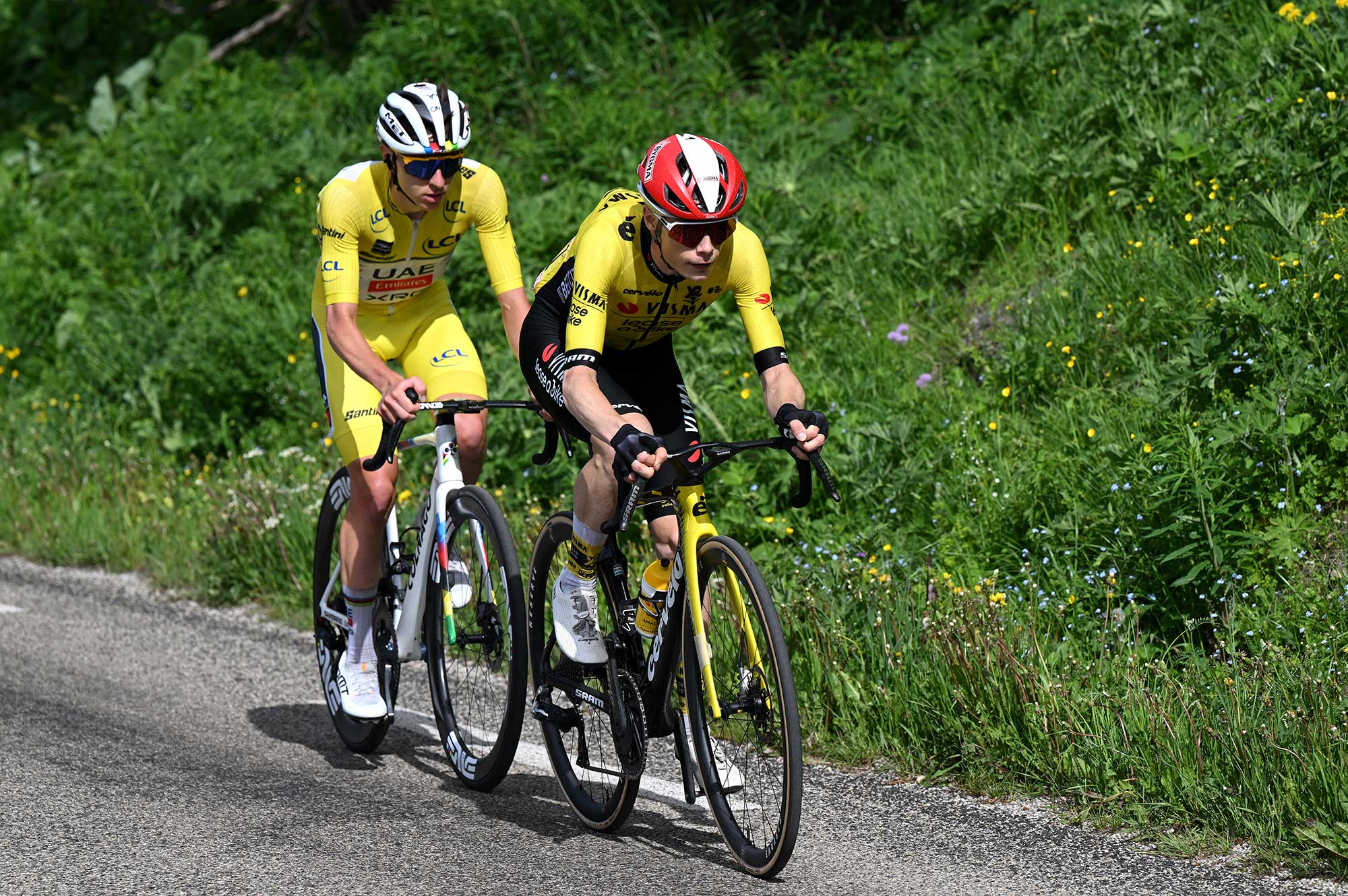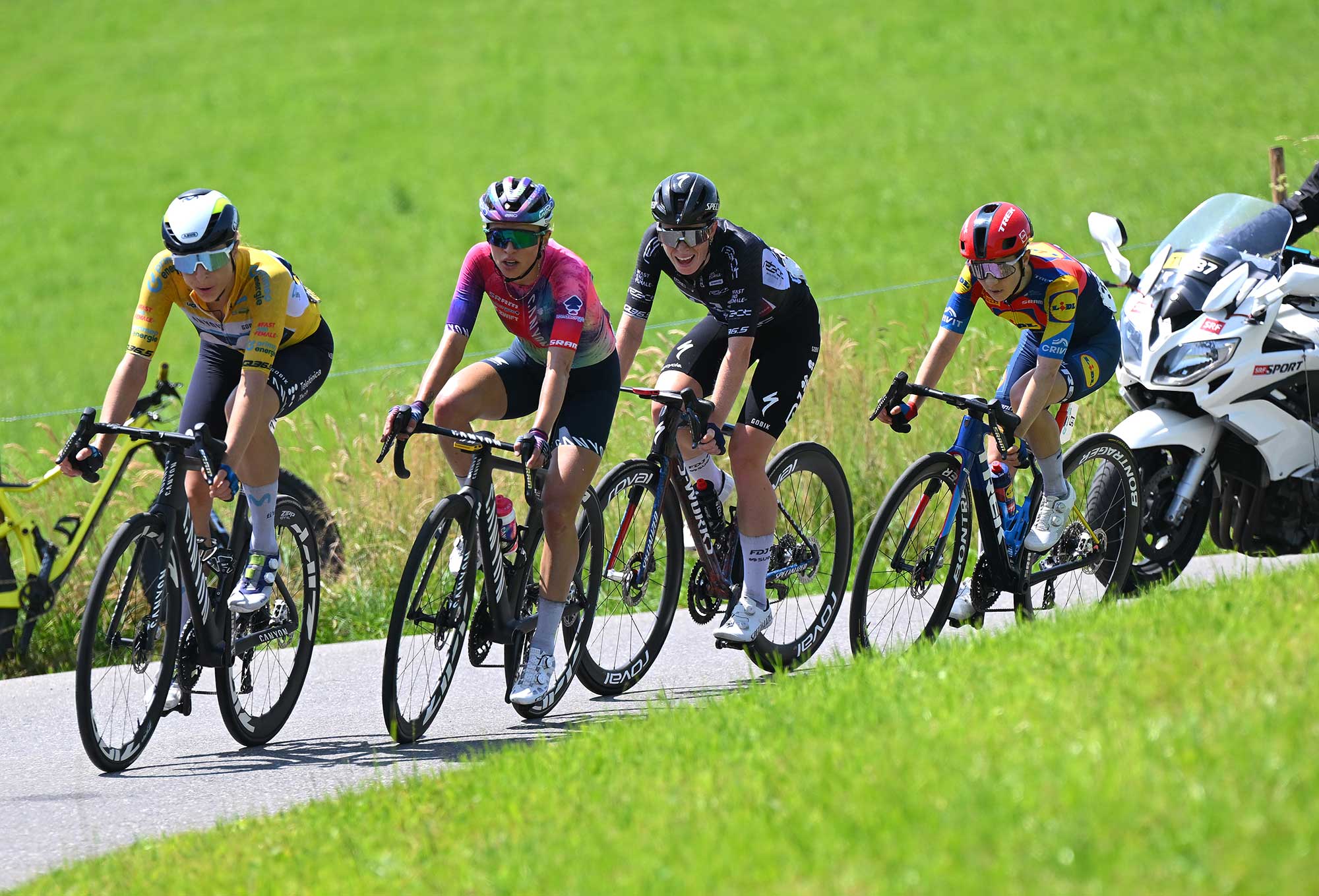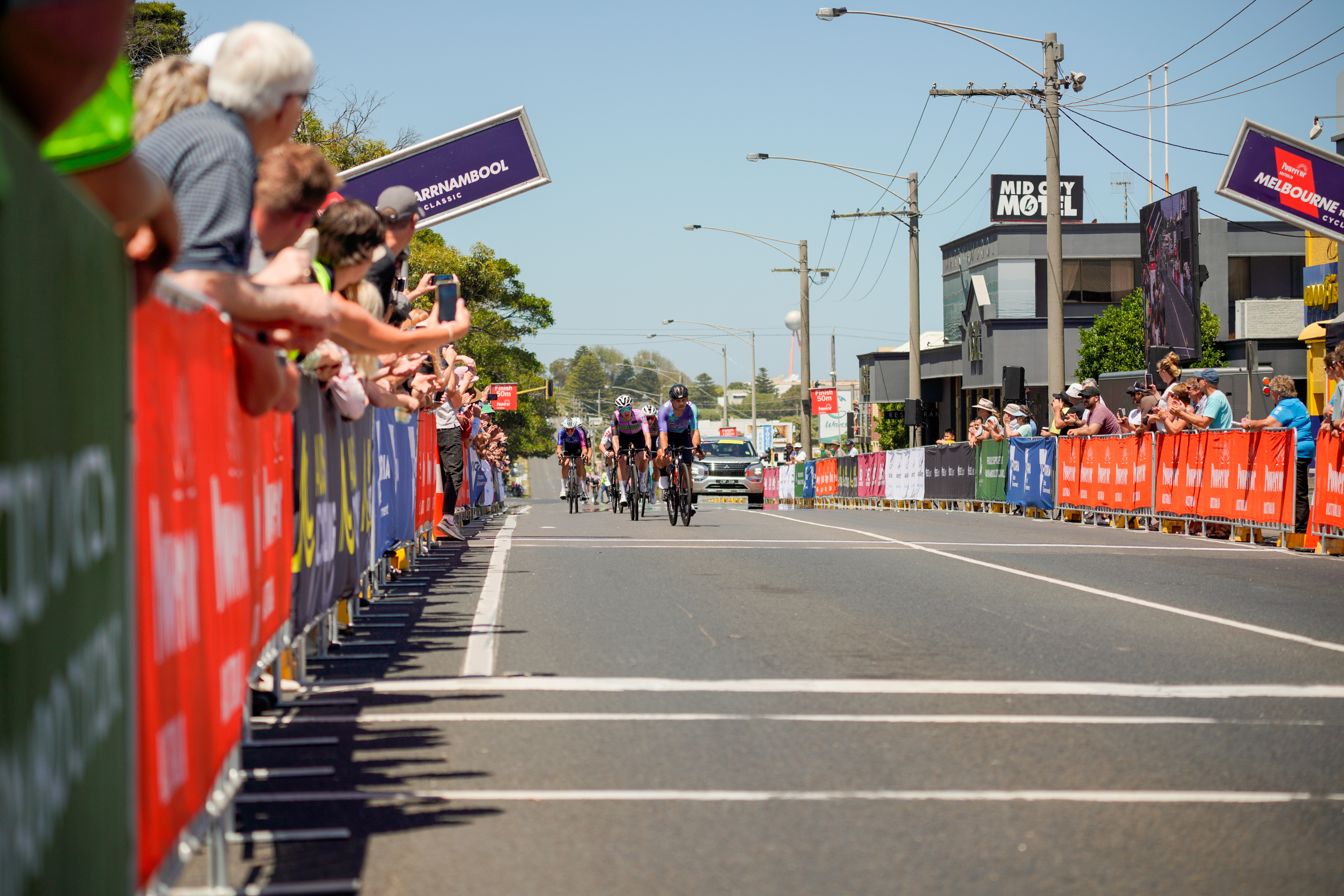I don't like cycling's idealistic approach to 'real' racing – Tactical diversity should be welcomed
In this age of short attention spans, cycling has become too fickle when it comes to what we deem exciting and what we decry as boring

I was on the ground for the first three stages of the Critérium du Dauphiné last week, and as expected, plenty of things caught my eye at the pre-Tour de France stage race.
From a bold new Factor prototype bike to the hometown send-off given to Romain Bardet at the start of stage 3, and lots of action in between, there was a lot to take in. However, perhaps what stuck with me most was a question posed to Tadej Pogačar about his rival Jonas Vingegaard.
“Do you like Jonas more now he’s a real racer?” asked a fellow member of the press, in reference to the Dane's attack on the final climb of the opening day. The move initiated a decisive five-man break including Pogačar, plus Remco Evenepoel (Soudal-QuickStep), Mathieu van der Poel (Alpecin-Deceuninck) and Santiago Buitrago (Bahrain-Victorious).
I didn’t pick up on the question until I watched it back on Cyclingnews’ social media channels. That’s a rather unfair definition of Vingegaard’s approach to racing, I thought, and some of you agreed in the comments.
In defence of the journalist, it could well have been an innocent mistake in translation; however, it got me thinking about the broader view of Vingegaard and riders who are more methodical in their approach, those who prefer patience over panache. It feels like a shallow take to label the Dane’s riding style as boring and dull to watch, but it's a tag he's been branded with in recent years. Similarly, he has taken plenty of flak for rarely diverting his attention from the Tour de France, even if it's an approach that has proven fruitful for him and would be considered par for the course in decades gone by.
Not every rider has the breadth of attributes that Pogačar is blessed with – it doesn’t make them any less of a racer, though.
What's more, in my book, racing extends far beyond the riders duking it out at the pointy end of the race. One of the reasons I fell in love with cycling, and road racing in particular, was the selfless aspect of pro cycling. The fact that most riders sacrifice themselves for their teammates, whether it be dropping back to the team car to grab a bottle or closing down attacks on a mountaintop finish.
The latest race content, interviews, features, reviews and expert buying guides, direct to your inbox!
Will we ever be satisfied?
I might be in the minority, but patience, tactical plays, and attritional racing get me just as excited as lights-out attacks.
Yet even Pogačar, with his all-consuming and cannibal-esque approach to pro cycling, isn't free from criticism, managing to draw his own set of critics. It perhaps highlights an underlying fickleness in the sport, where grading of most riders' abilities is made with Pogačar's Swiss army knife skillset as a benchmark, yet even then, some aren't content with his style. Whichever way you decide to win a bike race, you're seemingly not going to make everyone happy.
Rolling the tape back a decade or so and Team Sky were another prime example of the cycling world taking issue with their winning tactics. Their suffocating approach to stage racing saw the birth of the ‘mountain train,’ or just the ‘Sky train', such was its effectiveness. Other teams would follow suit soon enough, perhaps dampening the effect of the British team in the high mountains.
That period of recent cycling history may also be why, now, Pogačar’s freeform approach to the Grand Tours is held in such high regard by his supporters – seemingly no stage is off limits from a GC battle. And I’m not going to sit here and say that it isn’t entertaining to watch, nor that it doesn't leave you unable to take your eyes off even the most passive of Grand Tour stages. However, I do believe it’s inadvertently created a dopamine addiction within the community, where patience and numerical strength are past their best, and explosiveness is everything.
The strength that’s demonstrated by a mountain train shedding rivals off its wheels is overlooked because it’s not something that happens instantly, nor is it easily clippable for social media consumption. Yet the final standings of a Grand Tour don’t include an asterisk saying 'awarded +20 seconds for explosive racing', and nor should they. There’s more than one way to win a bike race, and we shouldn’t disregard certain tactics or plans just because they’re more predictable or well-worn than others.

SD Worx-Protime dominated the 2024 season in the women's WorldTour, but a raft of off-season transfers has left them still hunting their first stage race title this campaign. The team are still mightily successful and romped to several one-day victories this spring, but as my colleague Simone Giuliani wrote recently, 2025 marks the end of predictability in the women's peloton. The open racing that has come since, with more teams contending against each other, is a welcome sight and shows why variety is the spice of life – a one-size-fits-all approach isn't necessary.
Tactical diversity is a common sight in plenty of other sports, too. There have been football teams who have been equally as successful despite one playing a possession-based game and the other a less easy-on-the-eye counter-attack. The same goes for test cricket and tennis to an extent, too, where patient, defensive play can prove just as crucial as aggressive, powerful hitting. Cycling should do more to cherish this spectacle of contrasts, and not be so quick to lecture one on how they can be more like the other.
Ahead of this year's Tour de France, the two main protagonists have gone about their build-up in stark contrast to one another, and will likely approach the race itself in differing manners too, but they should both be appreciated equally, not least because this polarity adds to the excitement and intrigue of the race, but also because they have both proven on multiple occasions that their approach to racing a Grand Tour can result in them finishing with a yellow jersey on their back.
The Tour de France is the biggest race in cycling, and a Cyclingnews subscription offers you unlimited access to our unrivalled coverage. Get all the breaking news and analysis from our team on the ground in France, plus the latest pro tech, live race reports, and a daily subscriber-only newsletter with exclusive insight into the action. Find out more.

Pete joined Cyclingnews as Engagement Editor in 2024 having previously worked at GCN as a digital content creator, cutting his teeth in cycling journalism across their app, social media platforms, and website. While studying Journalism at university, he worked as a freelancer for Cycling Weekly reporting on races such as the Giro d’Italia and Milan-San Remo alongside covering the Women’s Super League and non-league football for various titles. Pete has an undeniable passion for sport, with a keen interest in tennis, running and football too.
You must confirm your public display name before commenting
Please logout and then login again, you will then be prompted to enter your display name.
